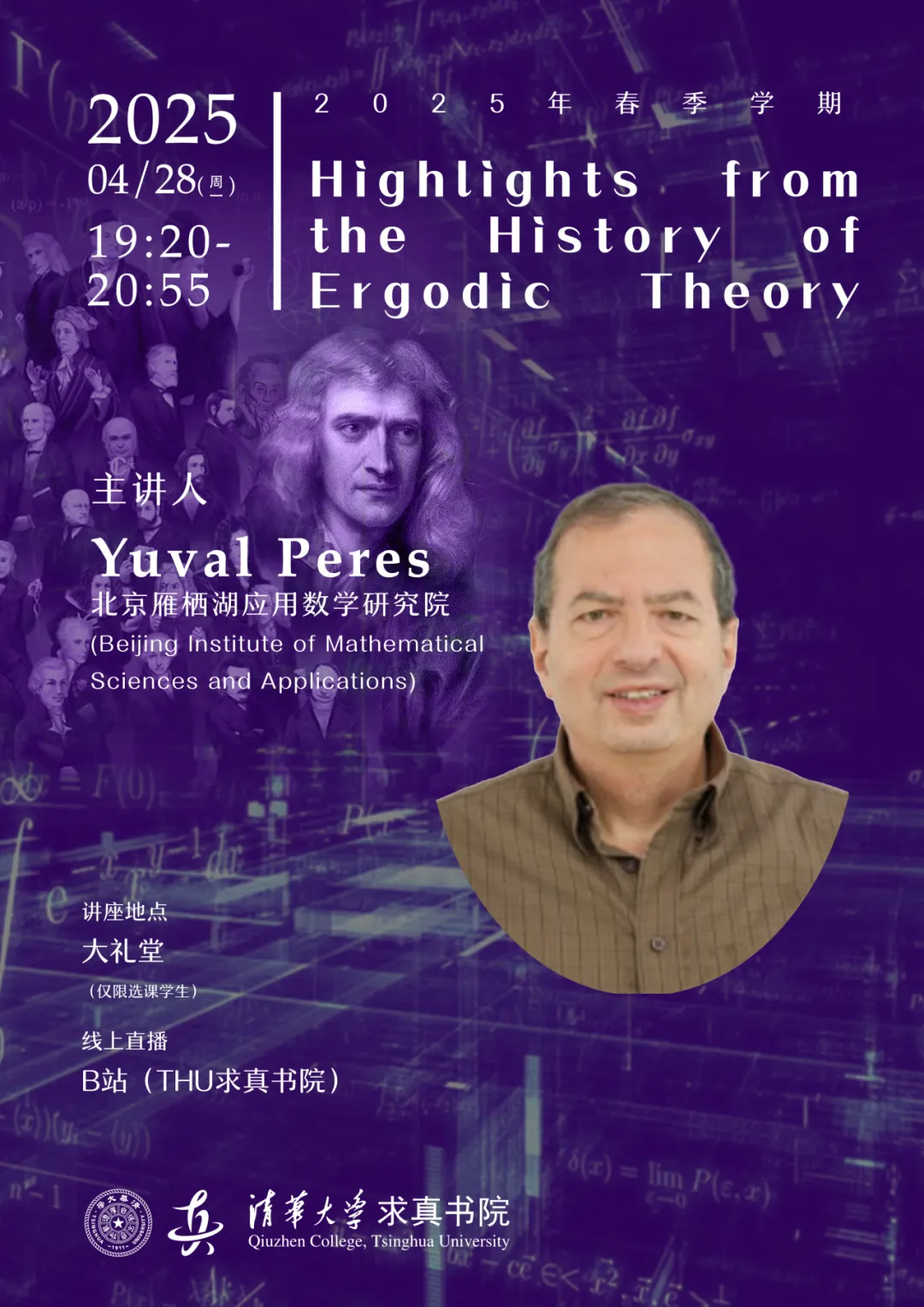
课程信息
主题:Highlights from the History of Ergodic Theory
时间:2025.4.28 (周一) 19:20-20:55
线下地址:清华大学大礼堂
主讲人:Yuval Peres
主办单位:清华大学求真书院
摘要
Ergodic Theory studies the long term behavior of dynamical systems. It originated from two main themes: the phenomenon of recurrence, discovered by Poincaré (1890), stating that almost all orbits return arbitrarily near their starting points, and the ergodic hypothesis of Boltzman (1887), that time averages converge to space averages; the latter was famously established by Von Neumann and Birkhoff in 1932. Lévy (1935) applied the ergodic theorem to the Gauss map and obtained key results on the continued fraction expansions of typical real numbers.
The problem of identifying which dynamical systems are isomorphic, was solved in many cases by Kolmogorov, Sinai and Ornstein between 1955 and 1970 using entropy (building on the ideas of Shannon from information theory). The Markov partitions pioneered by Adler and Weiss (1967) were extended by Sinai (1968) and Bowen (1973) to a powerful tool in smooth dynamics. Kingman's (1973) subadditive ergodic theorem yielded important connections to probability theory, and Furstenberg's (1977) refinements of Poincaré recurrence uncovered rich connections to combinatorial number theory. In the lecture I will discuss these breakthroughs and some of their modern developments, including the ergodic theory of group actions.
主讲人介绍
Yuval Peres obtained his PhD in 1990 from the Hebrew University, Jerusalem. He was a postdoctoral fellow at Stanford and Yale, and was then a Professor of Mathematics and Statistics in Jerusalem and in Berkeley. Later, he was a Principal researcher at Microsoft. Yuval has published more than 350 papers in most areas of probability theory, including random walks, Brownian motion, percolation, and random graphs. He has co-authored books on Markov chains, probability on graphs, game theory and Brownian motion. Dr. Peres is a recipient of the Rollo Davidson prize and the Loeve prize. He has mentored 21 PhD students. Dr. Peres was an invited speaker at the 2002 International Congress of Mathematicians in Beijing, at the 2008 European congress of Math, and at the 2017 Math Congress of the Americas. In 2016, he was elected to the US National Academy of Science.











